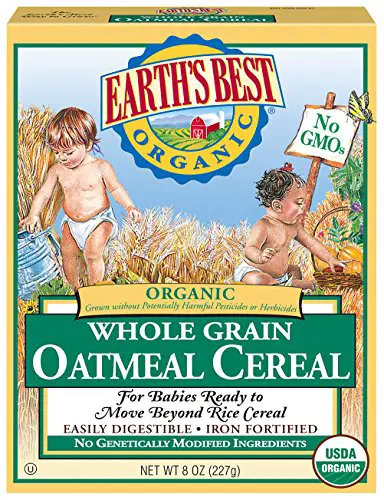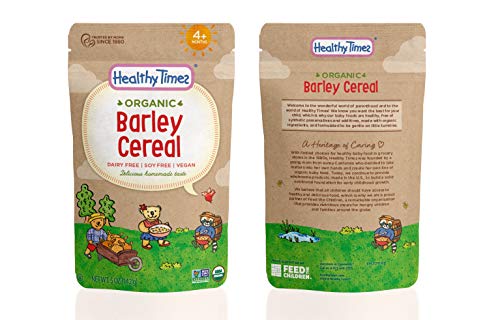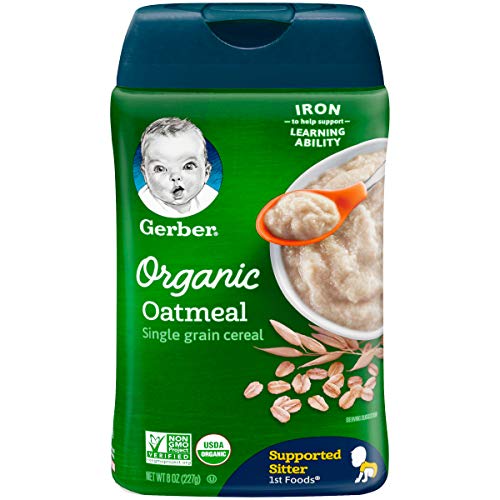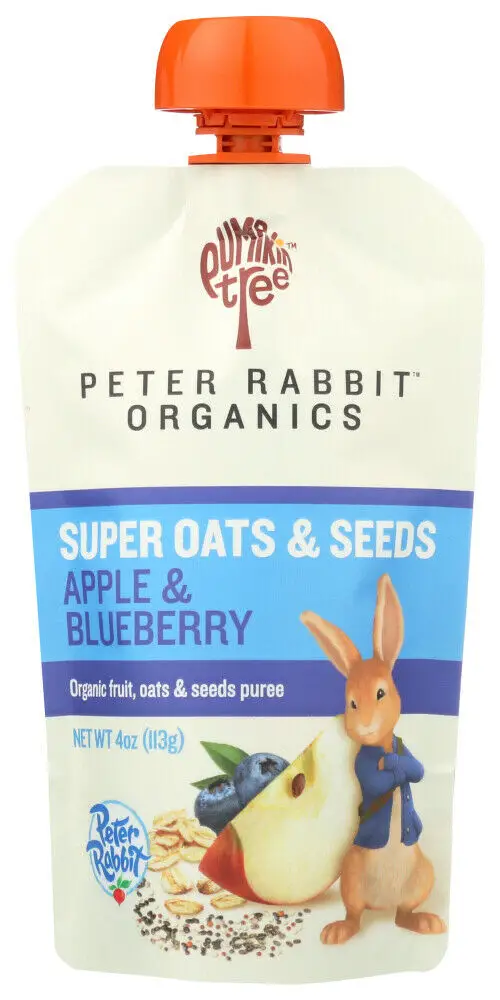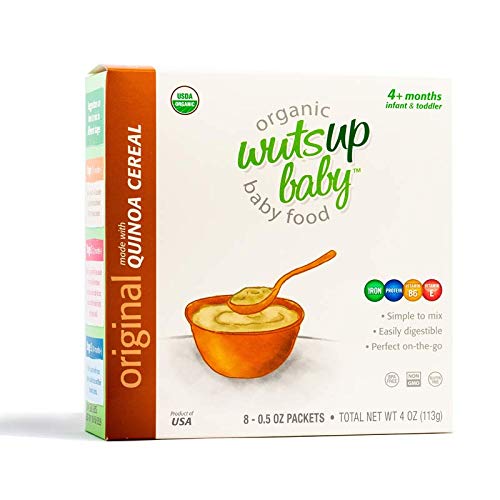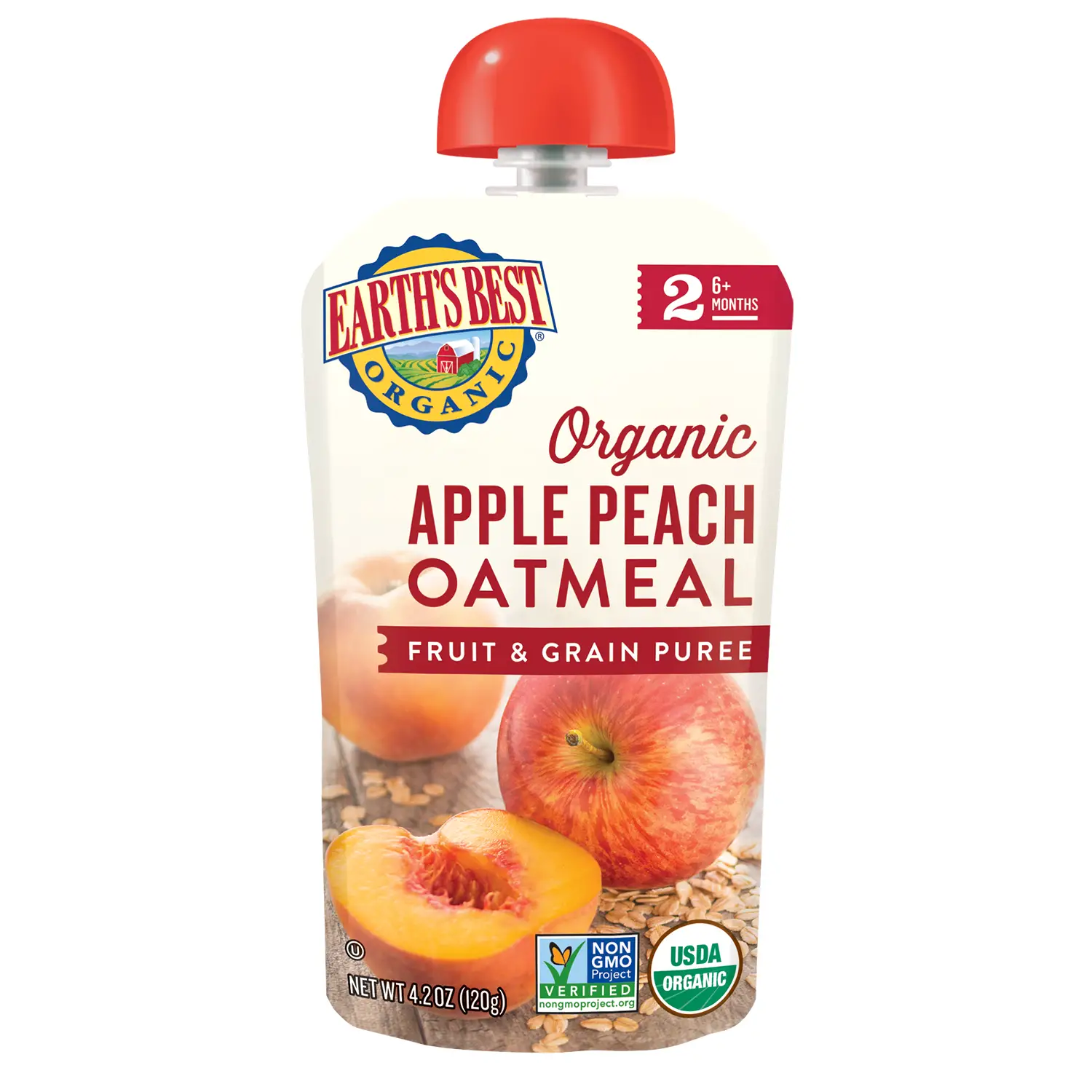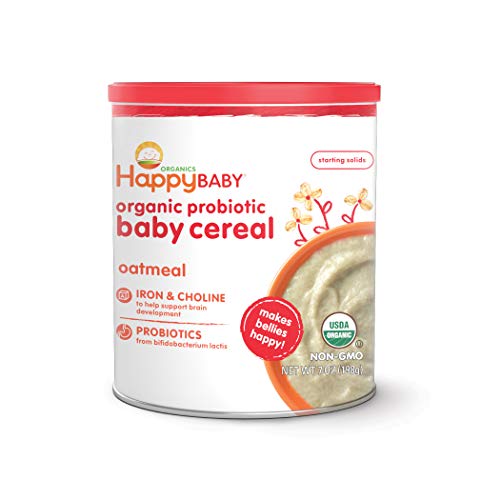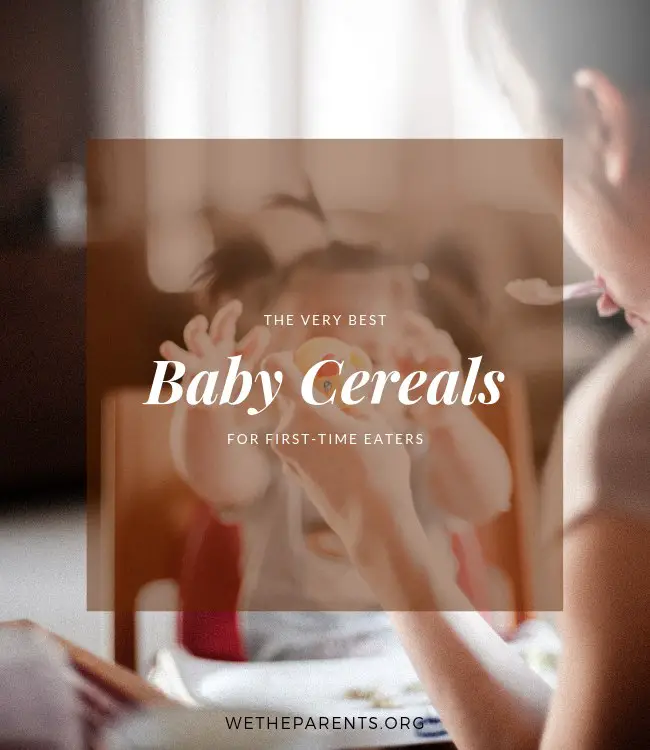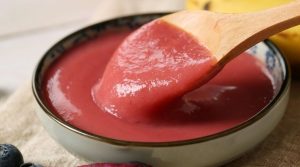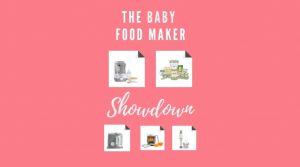Thinking of starting your infant off on solid foods? It’s a big decision with many considerations. Most pediatricians recommend waiting until four to six months before introducing solid food.
When your baby can support her head, her tongue thrust has given way to swallowing, and she’s drinking 32 ounces of milk daily, she may be ready. At this point, your baby is a Stage 1 eater, the first step on the road to eating like a big kid.
In this article:
A parent’s guide to baby cereals
So we’ve learned that, at six months, when your baby can swallow successfully and sit on her own, it’s time to learn to eat like a big girl. Many parents choose infant cereals to begin the big adventure.
Which grains are healthiest for babies?
Iron and zinc are the two nutrients that your baby will need in addition to breast milk or formula. He can get these in iron-fortified, single-grain cereals.
Whether you choose rice, barley, quinoa, amaranth, or oats, they are single grains. None contain gluten. Don’t mix them yet. Wait for that, ‘this might be an allergy’ signal that a single ingredient provides.
Do baby cereals contain gluten?
Rice and oats do not contain gluten; while wheat, rye, and barley do. Persons with celiac disease and non-celiac gluten sensitivity need to stay away from these grains for the rest of their lives. It’s important to understand clearly about intestinal disorders.
Celiac disease occurs in about 1% of the U.S. population. About 0.4% have a medically diagnosed allergy to wheat. So, this may necessarily only apply to a very few. While living gluten-free may appeal to persons wanting a more natural diet, it’s important to know the facts about gluten.
What is a probiotic baby cereal?
Probiotics, a mixture of ‘good’ bacteria which are considered protective when introduced into the gut via food, is a controversial subject.
Premature infants are given probiotics to prevent necrotizing enterocolitis. Probiotics do help temporarily with diarrhea resulting from antibiotic use. Doctors often recommend probiotics for breastfed babies with colic.
For now, the research is too scarce, and some babies might react poorly to probiotics. These are not vitamins, but live bacteria. If your pediatrician recommends probiotics for your child, ask for the name of the product your doctor recommends.
What about stories that rice cereal contains arsenic?
This is an issue that may or may not be a problem. Arsenic is everywhere in nature. Rice is very good at accessing arsenic and making it part of its structure. Some advocacy groups are sounding the alarm about infant rice cereal.
Baby food manufacturers are testing and trying to solve the problem. Very few infants show any signs of damage, probably because they eat rice cereal for such a relatively short time. Here is an instance of parents’ judgment superseding all.
Feeding baby like a boss
According to the guidelines published by the famed Cleveland Clinic, there are some pro methods that will make learning to eat easier for both you and your baby.
You are embarking on eating habits for your child that will last well into the future. Here are some tips from experts and also from my hard-won experience with Jack and Alice.
Which food, how much, and when (tips from a mom of two)?
- Don’t rush your baby onto solids. With adequate breastmilk or formula milk intake, there’s generally no need to introduce solid foods before 4 to 6 months. In fact, doing so can have adverse health effects. (Source) Always speak to your doctor when considering introducing solid foods early.
- Start small, offering your baby a spoonful or even less. You want to tempt her with a taste, not shovel an entire bowlful into her! You can offer a bit more at each feeding, progressing to one to two spoonfuls within three or four days. Eventually, you might plan a goal of one small jar (about four ounces or half a cup) of strained baby food at each of three meals a day.
- Smart parents are always alert to possible food allergies. You may wish to introduce only one new food every three to five days. If your child gets diarrhea, vomits, or develops a rash, stop the new food and call your pediatrician.
- Most parents begin solid feeding with infants’ cereal and vegetable and fruit purees. Solid food can also include meat, such as turkey, chicken or beef. These are iron and zinc rich foods. It’s important to note that during the first year, any solids are complementary to breast or formula milk. They do not replace them as a primary source of nutrition.
- Doctors recommend giving your baby no more than four ounces of 100% pasteurized fruit juice no earlier than seven months old.
- Here’s a pro tip I learned the hard way: Let mealtimes last no more than 15 to 20 minutes. This will reduce distractions, keep the focus on the meal, and minimize the time they spend throwing food at you or the dog!
- How often does mealtime come around? Usually, most little ones should eat from three to six times each day, three meals and two snacks.
- Here are some foods that pediatricians recommend parents to avoid: sugary, spicy, or salty foods, honey in any form at all in the first year. Beware of choking hazards like popcorn, chips, raw fruits and vegetables, raisins, whole grapes, hot dog pieces, sticky peanut butter, or marshmallows.
- Cow’s milk is not suitable for children less than a year old.
Our top picks for best baby cereals
Editor’s choice
Our opinion
Earth’s Best (cheap price on Amazon) offers several varieties of rigorously tested USDA-certified Organic and non-GMO infant cereals. The company also does not use Genetically Engineered Ingredients (GEIs).
There are no colors, artificial flavors, or preservatives used in Earth’s Best cereals. Their products contain no toxic chemicals or heavy metals. Made with whole grains, no salt, or refined sugar, these cereals are developed for use by Stage 1 early eaters.
There are no added modified starches. As an organic product, the grains are grown without the use of pesticides. The Earth’s Best cereals are Kosher-certified, except for meat products. The cereals are dairy and soy-free and suitable for vegan and vegetarian households.
What we love
- Organic and non-GMO
- Cereals are Kosher, vegetarian and vegan-certified
- No added salt, sugar, or flavors
Watch for
- Prices have recently risen considerably
- Some babies did not like the taste
Best for budget
Our opinion
Barley is a great first cereal for babies at Stage 1, the earliest eaters. Healthy Times Cereal (cheap price on Amazon) is USDA-certified Organic and contains no GMO ingredients. The product is free of dairy and soy, so is easily digestible. There are no salts, sugars, or flavorings, just good honest whole-grain barley flour.
This cereal is suitable for vegan and vegetarian households. Healthy Times also offers a gluten-free brown rice cereal.
What we love
- Organic and non-GMO
- Vegetarian and vegan friendly
- No added salt, sugar, or flavors
Watch for
- Parents have reported some shipping issues
- Prices have risen lately
Best baby oatmeal
Our opinion
Two servings a day of this oat-based, organic, non-GMO cereal provides 90% of your infant’s daily requirement of iron for brain development. Gerber Organic Oatmeal Cereal (cheap price on Amazon) also contains vitamins C, B, A, E, and zinc.
This cereal contains whole-grain oat flour, including some wheat flour to provide one of the B vitamins. Gerber has made a major commitment to Clean Field Farming. If you’re a fan of organics, their philosophy and farming practices will put you at ease.
This is a great cereal to begin your baby’s eating adventure as it’s a single-grain cereal. You can mix the dry cereal with either breast milk or formula until it meets the proper consistency for your baby.
If you want to include only organic and non-GMO foods in your child’s diet, this may be a good choice for your baby’s first cereal. Gerber Organic Oatmeal Cereal is certified Organic by the U.S. Department of Agriculture.
This cereal comes in 8-ounce containers that make up about 15 servings. You can even use this oatmeal as a base for recipes for both older children and adults. By adding pureed fruits, you might even tempt a slightly older infant to relish this cereal.
What we love
- Excellent nutritional value
- Non-GMO and organic ingredients
- Single-grain cereals
- Gerber’s farming practices
Watch for
- Note the expiration date on the label. It is set for about one year ahead
- Some parents thought the package pour spout was too large and flat, leading to over pouring
Best organic baby snack
Our opinion
This Peter Rabbit Seeds Apple & Blueberry Snacks (cheap price on eBay) is perfect for the older baby. The resealable, squeezable pouch contains fruit, oats, chia, and quinoa. All ingredients are USDA-certified Organic and are Non-GMO Project Verified. No water or sugar is added.
Specific product ingredients list organic apple: 74%, organic blueberry: 14%, organic pear: 8%, organic oats and seeds: 3% (organic milled oats: 70%, organic milled chia: 25%, organic milled quinoa: 5%), organic lemon juice concentrate – trace.
If your baby has an allergy to one of these ingredients, then best to shop for another flavor or brand. Your child should be at least nine months old and have successfully eaten mixed products before trying this snack. Seeds may be an allergy issue, so it might be better not to introduce any other foods for a week or so.
Older children, and even adults, enjoy these squeezy treats. Many parents pack them along for hikes or store them in go-bags for emergencies. The Peter Pan snacks come in several other mixed flavors of fruits and vegetables.
What we love
- Excellent nutritional value in a snack
- Resealable
- Non-GMO and organic ingredients
- Good source of dietary fiber
- Useful for snacks for kids of any age
Watch for
- Seeds may be an allergy issue
- Shelf-life is about eight months, an issue for long-term storage
Our fifth choice
Our opinion
Wutsup Baby strongly claims that its products are the closest to breastmilk’s nutritional values. It has all the amino acids, Omega 3, 6, and 9, prebiotics, and fiber. It also includes protein, iron, magnesium, and vitamins E and B2.
The Wutsup Organic Quinoa Baby Cereal (cheap price on Amazon) keeps possible allergens out of its product. There’s no milk, fish, eggs, shellfish, tree nuts, wheat, peanuts, gluten, or soy in the cereal. It’s also free of artificial flavors, GMOs, and preservatives. The natural drum cooking process helps retain fiber and prebiotics.
The travel packs can be easily prepared by mixing with breastmilk or water at Stage 1, or mashed fruit/vegetables for Stage 2 eaters. The cereal is excellent for babies from six months, along with their older siblings, for up to four years. Parents are offered a 100% money-back guarantee of satisfaction.
The cooking process is unique. The company cleans and scarifies the raw quinoa grain, crushes the product into pre-cooked flour, then drum-dehydrates it. They use no freeze-dry processes. The factories are soy, wheat, and dairy free.
What we love
- Probiotic ingredients
- Organic, non-GMO
- No added salt, preservatives, or flavors
- Packed for use in traveling
Watch for
- Some babies don’t like the taste of the cereal alone
- Parents report some clumping when mixed
Best natural fruit
Our opinion
Stage 2 infant foods (cheap price on Walmart) are meant for babies about nine months old. Their food no longer needs to be pureed, and the baby can now eat two different foods in one bowl.
Earth’s Best package their apple, peach, and oatmeal pureed cereal in squeezable, resealable BPA-free pouches. It offers the baby whole-grain oatmeal packed with natural fruits. The company uses no artificial modified starches, colors, or flavors in the manufacturing process.
Many children continue to enjoy these pouches. At around 35 calories, it’s the perfect snack.
What we love
- Organic and non-GMO
- Certified Kosher
- No added salt, sugar, or flavors
- Earth’s Best has been in business since 1985
Watch for
- Read the expiration date on the product on receipt. Some may be close
- No list of ingredients for parents to examine
Best probiotic
Our opinion
If your baby needs a probiotic cereal for digestive issues, Happy Baby makes our favorite variety. It includes iron, choline, and probiotics. Mix with breast milk or formula, then later with Happy Baby’s Simple Combo purees.
Happy Baby Organic Probiotic Baby Cereal (cheap price on Amazon) is fortified with iron for healthy brain development and choline for both brain and eye development. Happy Baby also contains 20% of your baby’s daily calcium requirement.
What we love
- Probiotic ingredients
- Organic
- No added salt, sugar, or flavors
- The introduction to a complete probiotic line of products
Watch for
- Parents report some shipments arrive late
- Some say that off-odors are present at times
- Watch for close sell-by dates when the shipment arrives
Making your own baby cereal
If planning to make your baby’s food in your own kitchen, as every loving parent means to do at some point, there are some hazards that can easily be avoided with some basic baby-centered information.
- In the vegetable family, use only pureed peas, sweet potatoes, and corn.
- Do not use homemade spinach, green beans, squash, beets, or carrots. These vegetables contain nitrates that may cause anemia (low blood count). These vegetables can be used if they are commercially prepared because they have been tested for nitrates.
- Prepared foods last longer than those you make from fresh food, so keep an eye on the leftovers.
- Do not add flavorings, sugar, or salt.
The hardware and software
There’s more to successful feeding than the choice of foods. How you feed your child, and with what implements, make a lot more difference than you’d imagine.
Again, let’s look at the general rules that can set you up for success at lunchtime before that desperately needed nap (by the baby!)
- Pediatricians recommend against feeding solid foods or juice drinks in bottles. The point isn’t to get the child to eat more, but to eat well. Some infants get dependent on the bottle alone providing all that great flavor of rice cereal and applesauce. They see no reason to slow down and eat with that spoon mom keeps shoving in his mouth.
- At around nine months to one year, your child will begin to bring her hand, and any other reachable object, to her mouth. At this time, you can slowly decrease the baby jar and mashed foods and introduce finger foods. Babies don’t normally use spoons or forks until after they reach the magic age of one year, so finger foods are a perfect transition. Of course, to prevent choking, cut the finger foods into very small pieces.
- Don’t warm your baby’s formula or food in the microwave. Things get very hot very fast in those machines, and it’s easy to burn their tender mouths. Instead, put the bottle or jar into a pan of warm water, or place them under a stream of warm tap water.
- When your infant is eating, he should be sitting up straight. This posture helps prevent choking and allows for proper swallowing. Ask your doctor about adaptive seating if your child has special needs.

And the winner is…
Earth’s Best Organic Infant Cereal (cheap price on Amazon). The ingredients, and care with which they are grown, harvested, and prepared, are exemplary examples of responsible baby food preparation.
This cereal is certified organic and uses no modified artificial starches, colors, or flavors in its preparation. The squeezable, resealable pouches make serving a snap both at home, in the car, and at grandpa’s house.
This is a product that kids can enjoy for years. Parents commenting on this cereal are uniformly happy with the product.




